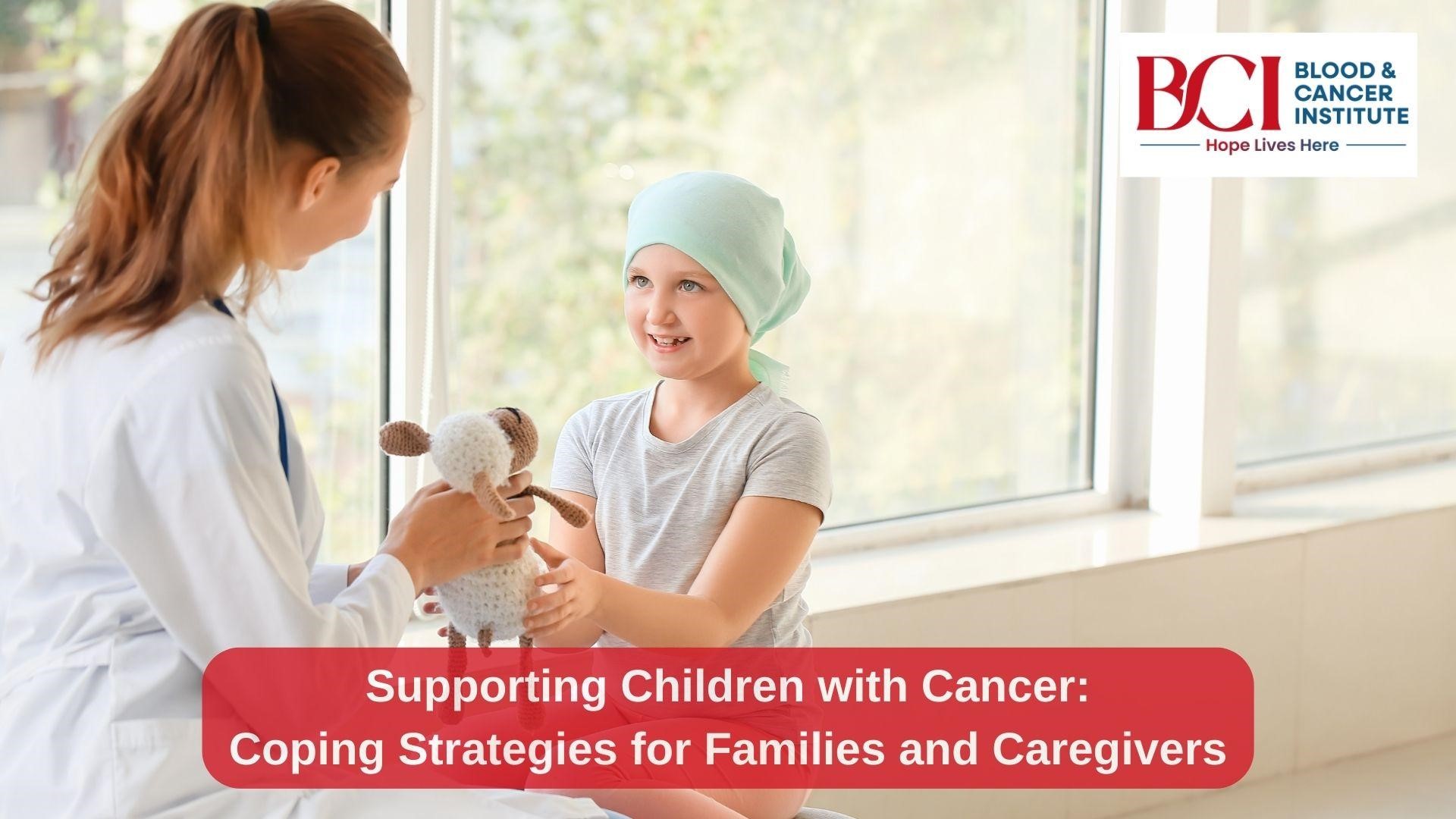
- By : BCI
- Blog
- Comments: 0
Supporting Children with Cancer: Coping Strategies by Our Paediatric Cancer Specialist in Surat for Families and Caregivers
When a child undergoes cancer treatment it is a daunting journey for families and caregivers as well. Along with the emotional challenges, it is filled with practical obstacles too. However, amidst the uncertainty and stress, there are coping strategies and support systems available to help navigate this difficult path. In this blog, our paediatric cancer specialists in Surat at BCI- Blood and Cancer Institute, have shown ways in which families and caregivers can support children with cancer, instilling resilience, strength, and hope along the way.
Open Communication:
Honest and open communication is essential when discussing a child’s cancer diagnosis and treatment plan. Families and caregivers should create a safe space where children feel comfortable expressing their thoughts, fears, and questions. Our Cancer specialists in Surat consulting at BCI, one of the best cancer hospitals in Surat, recommend using age-appropriate language and providing honest answers to help alleviate anxiety and empower children to cope with their illness.
Education and Information:
Understanding the nature of childhood cancer, treatment options, and potential side effects is crucial for families and caregivers. By educating themselves about the disease and its management, caregivers can make informed decisions and advocate effectively for their child’s needs. Healthcare providers play a vital role in providing information and guidance, empowering families to navigate the complexities of cancer care.
Emotional Support:
Coping with childhood cancer can evoke a range of emotions for families and caregivers, says our paediatric cancer specialist in Surat, including fear, sadness, and frustration. It’s important for caregivers to prioritize their own mental and emotional well-being, seeking support from friends, family members, support groups, or mental health professionals when needed. Finding healthy outlets for stress, such as exercise, mindfulness, or creative expression, can help caregivers maintain a sense of balance and resilience.
Routine and Stability:
Maintaining a sense of routine and stability can provide a sense of normalcy amidst the chaos of cancer treatment. Establishing consistent daily routines, such as mealtimes, bedtime rituals, and recreational activities, can help children feel grounded and secure during treatment. Caregivers should strive to create a nurturing environment that promotes stability and continuity, even in the face of medical challenges.
Empowerment and Involvement:
Empowering children to participate in their care and decision-making process can foster a sense of control and autonomy. Depending on their age and developmental level, children can be involved in treatment discussions, self-care activities, and decision-making regarding their preferences and priorities. By encouraging children to take an active role in their healing journey, caregivers can promote resilience and self-confidence.
Social Support Networks:
According to our cancer specialist in Surat, building a strong support network is invaluable for families and caregivers of children with cancer. Connecting with other families facing similar challenges through support groups, online forums, or community organizations can provide validation, understanding, and practical advice. Social support networks offer a sense of belonging and solidarity, reminding families that they are not alone in their journey.
Celebrating Milestones and Achievements:
Despite the challenges posed by childhood cancer, it’s important for families to celebrate milestones and achievements along the way. Whether it’s completing a round of treatment, reaching a personal goal, or simply enjoying a moment of joy and laughter together, acknowledging and commemorating these moments can uplift spirits and provide much-needed encouragement.
Seeking Professional Help When Needed:
Recognizing when additional support is needed and seeking professional help is essential for families and caregivers. Child life specialists, social workers, psychologists, and other healthcare professionals can offer specialized support and resources to address the unique needs of children with cancer and their families. Don’t hesitate to reach out for help when navigating the challenges of childhood cancer.
Conclusion
Supporting children with cancer requires a multifaceted approach that addresses their physical, emotional, and practical needs. Encouraging open communication, providing education and information, offering emotional support, and empowering children to actively participate in their care are part of cancer treatment in Surat. Using these techniques families and caregivers can navigate the journey of childhood cancer with resilience, strength, and hope. It is important to nurture a supportive environment where children with cancer and their families feel supported and are surrounded by love.
